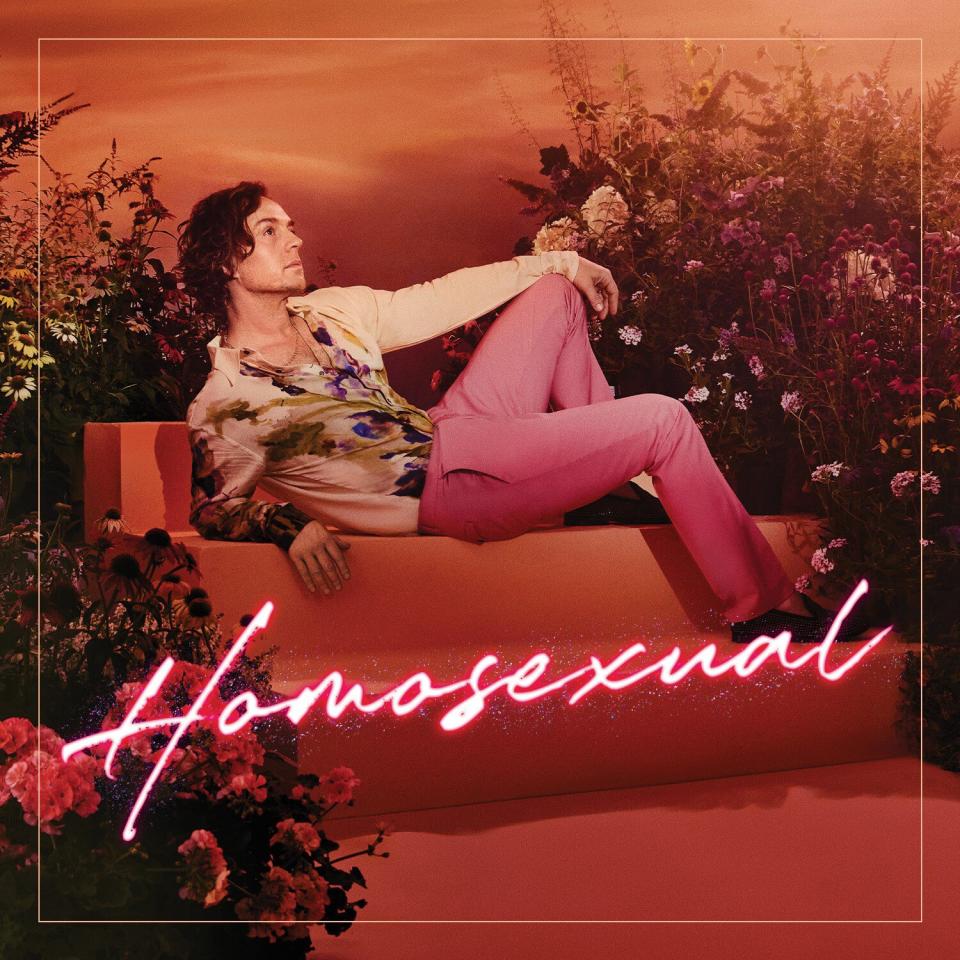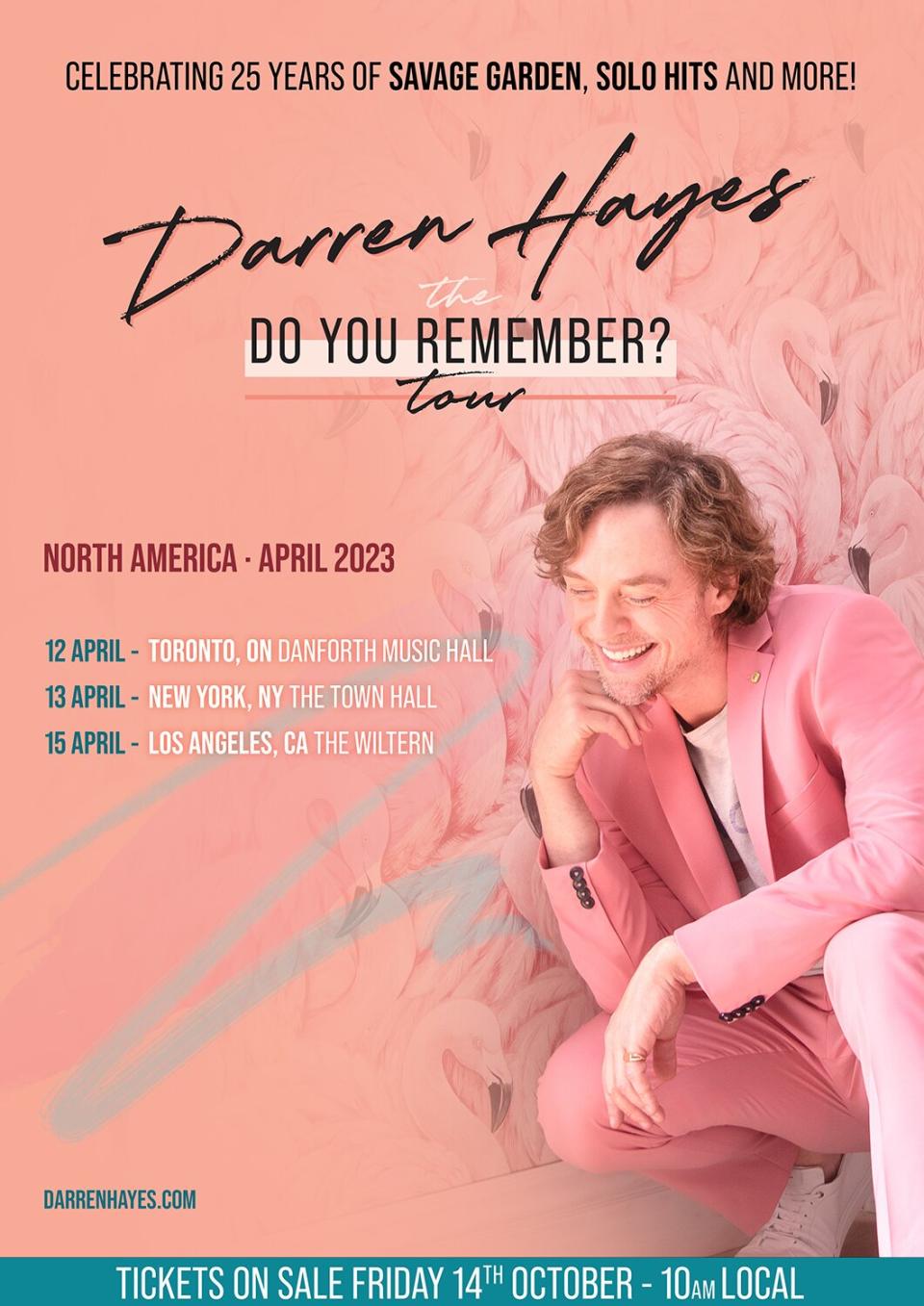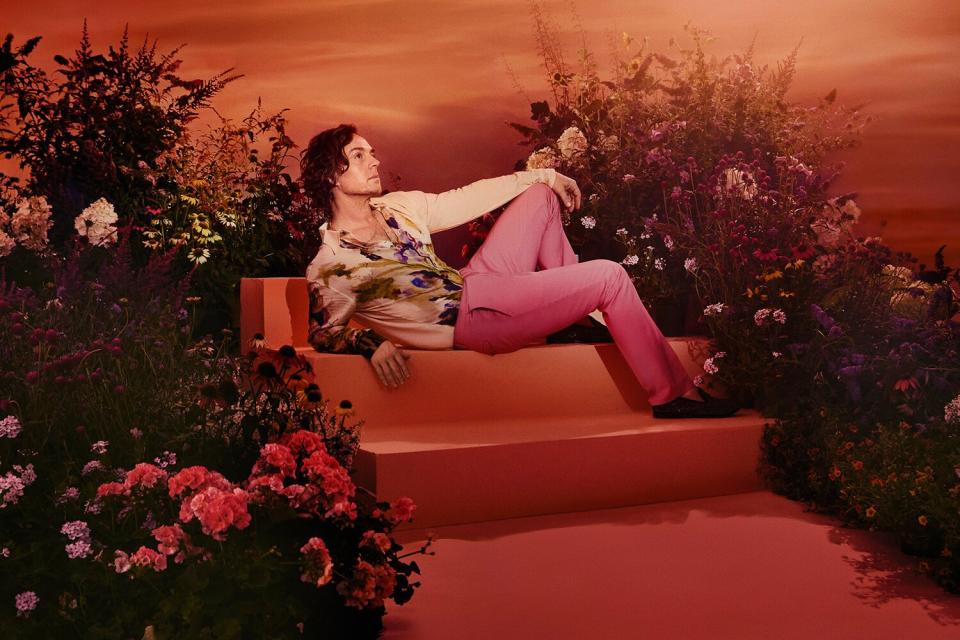Savage Garden's Darren Hayes Says Homophobic Music Executives Controlled His Image: 'I Was Muted'

Lindsay Adler Darren Hayes
After a decade away from music, Darren Hayes realized he had some unfinished business.
Following a traumatic and abusive childhood, Hayes topped charts worldwide with romantic jams like "Truly Madly Deeply" and "I Knew I Loved You" as one half of Savage Garden alongside producer Daniel Jones in the late '90s. The pop duo then suffered a turbulent breakup, and Hayes set his sights on solo stardom — only to face homophobia from music executives and embrace a smaller-scale career before exiting the industry altogether in 2012.
In recent years, the 50-year-old Australian singer-songwriter observed openly queer acts from Lil Nas X to MUNA rise to fame whilst remaining entirely themselves and felt the itch to return to music. "I felt a sense of grief because I just thought, 'Wow, I love how proud, how joyful and how fully formed this generation is,' and that was not even a possibility for me," Hayes tells PEOPLE, from the Los Angeles home he shares with his husband of 17 years, Richard Cullen — living a life that seemed unimaginable during his decades in the closet.
Now, Hayes is back with a new album about his journey titled Homosexual, which was written, produced and engineered entirely on his own. "I always felt like I never really was able to have as much control as I wanted to," he shares ahead of the honest and reflective body of work's release. "It took me years, but I was determined to make a record in the vein of the way George Michael made Faith."

Lindsay Adler Darren Hayes
Growing up in Brisbane to a family with a long history of depression, Hayes and his two siblings spent their childhoods learning to protect themselves and their mother, Judy, from extreme levels of physical and emotional abuse at the hands of their father, Robert. "The first person who called me — I hate saying this word — 'faggot' was my dad," he says, recalling nights when he and his siblings would fight Robert with hockey sticks to stop him from "coming after" Judy.
"We would have to almost knock him out so that we could get my mother into a car. We were too young to drive, but my sister would drive the car to motels," details Hayes. "We were children that learned how to patch up walls, so there would never be a social worker or anyone that could know."
Learning to conceal the at-home violence from outside sources helped inform Hayes' long-held instinct to hide his sexuality from everyone — including himself. He faced homophobia from not only his father but bullies at school based on mere speculation, leading him to suppress inklings that he could be gay for decades. "I didn't know any gay people. I'd never had any sexual experiences," he says. "I just thought, 'I guess this is just what it is.'"
Hayes married his high school sweetheart, makeup artist Colby Taylor, in 1994 — shortly after starting to make music with Jones while working as a preschool teacher during the day. While recording Savage Garden's first album the next year in Sydney, he found himself in one of the city's queer districts, walked into a theater to secretly view a gay pornographic film and quickly felt both aroused and alarmed.
Hayes then "dramatically" ran out of the theater and into a phone booth to call an emotional support helpline. After pouring his heart out to "the sassiest, most hilarious woman" on the other end of the call, he recalls being told: "'Oh honey, you're gay. You need to go home and tell your wife.'"
Confident in his relationship with the "incredibly progressive and cool" Taylor, he went home and told her everything. She was receptive, and they concluded that he was likely bisexual, not yet considering the potential fate of their marriage: "She thought I was expressing to her, 'Hey, I'm into men,' but I don't think she realized I was really saying, 'No, I'm realizing that my whole life up to this point has been this thing to please other people.'"

Lindsay Adler Darren Hayes
Following ineffective couples counseling with a religious therapist who told him to extinguish homosexual urges and stay married, which made Hayes "suicidal," Taylor encouraged him to explore his true feelings. The pair separated in 1998, and a divorce was finalized two years later, amid the height of Savage Garden's fame. Around the same time, Hayes and Jones began experiencing a personal rift while making their second album, 1999's Affirmation, which featured lyrics about the divorce and preceded the duo's split two years later.
"What's really lovely is actually the music and the band was my wonderland. That was my escape," explains Hayes, who notes that Jones was "incredibly accepting" of his identity. "It was when [Savage Garden] ended that my mental health really took a dive. The band was the only thing that was keeping me from really dealing with the fact that, 'Wow. I have to deal with my sexuality.'"
RELATED: Savage Garden's Darren Hayes Says Music 'Saved My Life' After Years of Denying His Gay Identity
Thanks to antidepressants and regular sessions with secular therapists, Hayes persevered and crafted his first solo album, 2002's Spin, via Columbia Records, the label that housed Savage Garden. But Hayes, who came out to close friends and colleagues around the same time, says the company was nervous that his flamboyant and fashionable appearance would give away his identity and, in turn, hurt record sales.
"They were obsessed with controlling my image in a way they had never been before," says Hayes, recalling a time when Columbia filmed an alternate storyline for his "Insatiable" music video featuring a scantily clad woman sexually pursuing the singer — without telling him. "It was almost as though I was muted, and that video was put on my tab. It was a million dollars."
Soon enough, the label ceased promoting Hayes in most of his major markets. He retreated to the United Kingdom in 2004, seemingly the only country to fully embrace him as an artist at the time. "I couldn't work out, at the time, why I went from having six months of, like, 'We need you in the country to do all the TV shows and live appearances,' to suddenly, 'We're pulling you from all that stuff,'" he explains. "Because I had friends at the label, some of whom were queer, I found out a year or two after the fact what the trickle-down opinion was."
At that point, Hayes had begun privately dating director and screenwriter Cullen, 52, after meeting on the now-defunct Gay.com — "How inventive," he quips. Cullen wasn't familiar with his career, which Hayes appreciated: "He's never been a Hollywood person. He's just a decent human being." The pair quietly married in 2005 and have lived in a happy union ever since. "He's been a rock, and he's been there for the highest of highs and all the lows," says Hayes. "He would live with me in a dirt shack."
Following the release of his fourth solo album, 2011's Secret Codes and Battleships, Hayes decided to take a break from music. He moved to Los Angeles with Cullen and enrolled in the Groundlings Theater & School, where he studied comedy alongside the likes of SNL's Chloe Fineman and formed his first adult friendships outside of the music industry. There, he met Johnny Menke, who earned a coveted spot in the school's weekly Sunday Company sketch comedy troupe and nearly turned it down, as he and his wife were about to welcome a daughter.
Utilizing his preschool-teaching experience, Hayes volunteered to watch the infant during Menke's weekly performances and continued doing so for about five years, which proved especially healing. "I got life, and that managed to pour itself back into my music and gave me that space to look back on my own childhood," he says. "I'm so proud of the fact that there's never been a moment where she's ever felt anything but loved in my care, and I'm so glad I got to prove that to myself."
RELATED: Savage Garden's Darren Hayes Honors 2016 Pulse Shooting Victims with 'All You Pretty Things' Single

Lindsay Adler Darren Hayes
In recent years, Hayes was struck with a few bolts of unexpected inspiration to make new music. After seeing Luca Guadagnino's Call Me By Your Name and taking in the plot points about gay romance and Elio's relationship with his father, he "left the cinema in floods of tears" and quickly went to the studio to write the charming "Let's Try Being in Love." Soon, Hayes felt compelled to craft a full new album — completely by himself, determined to avoid outside opinion.
Understandably, Homosexual features introspective lyrics about intense topics from Hayes' family life, music business experiences and relationships to overcoming suicidal thoughts and paying tribute to queer lives that've been tragically lost. "It was terrifying at points," he says of the disco-tinged project's creation. "They're heavy things to say on a pop record."
However, the record also features blissful moments. After enduring hardships, Hayes has admirably maintained the positive and romantic spirit that once birthed Savage Garden's hit songs, which still soundtrack weddings to this day. "'Truly Madly Deeply' is a love song written by someone that doesn't know much about love," he says. "Now, my love songs are much more nuanced — and they're less pretty on the outside."

 Yahoo Movies
Yahoo Movies 